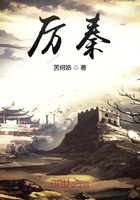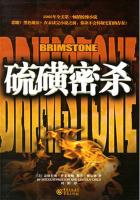Bunyan, in his long tramps, had seen them all. He had known what it was to be in danger of falling into a pit and being dashed to pieces with Vain Confidence, of being drowned in the flooded meadows with Christian and Hopeful; of sinking in deep water when swimming over a river, going down and rising up half dead, and needing all his companion's strength and skill to keep his head above the stream. Vanity Fair is evidently drawn from the life.
The great yearly fair of Stourbridge, close to Cambridge, which Bunyan had probably often visited in his tinker days, with its streets of booths filled with "wares of all kinds from all countries," its "shows, jugglings, cheats games, plays, fools, apes, knaves, and rogues, and that of every kind," its "great one of the fair," its court of justice and power of judgment, furnished him with the materials for his picture. Scenes like these he draws with sharp defined outlines. When he had to describe what he only knew by hearsay, his pictures are shadowy and cold. Never having been very far from home, he had had no experience of the higher types of beauty and grandeur in nature, and his pen moves in fetters when he attempts to describe them. When his pilgrims come to the Hill Difficulty and the Delectable Mountains, the difference is at once seen. All his nobler imagery is drawn from Scripture.
As Hallam has remarked, "There is scarcely a circumstance or metaphor in the Old Testament which does not find a place bodily and literally in 'The Pilgrim's Progress,' and this has made his imagination appear more creative than it really is."It would but weary the reader to follow the details of a narrative which is so universally known. Who needs to be told that in the pilgrimage here described is represented in allegorical dress the course of a human soul convinced of sin, struggling onwards to salvation through the trials and temptations that beset its path to its eternal home? The book is so completely wrought into the mind and memory, that most of us can at once recall the incidents which chequer the pilgrim's way, and realize their meaning; the Slough of Despond, in which the man convinced of his guilt and fleeing from the wrath to come, in his agonizing self-consciousness is in danger of being swallowed up in despair; the Wicket Gate, by which he enters on the strait and narrow way of holiness; the Interpreter's House, with his visions and acted parables; the Wayside Cross, at the sight of which the burden of guilt falls from the pilgrim's back, and he is clothed with change of raiment; the Hill Difficulty, which stands right in his way, and which he must surmount, not circumvent; the lions which he has to pass, not knowing that they are chained; the Palace Beautiful, where he is admitted to the communion of the faithful, and sits down to meat with them; the Valley of Humiliation, the scene of his desperate but victorious encounter with Apollyon; the Valley of the Shadow of Death, with its evil sights and doleful sounds, where one of the wicked ones whispers into his ear thoughts of blasphemy which he cannot distinguish from the suggestions of his own mind; the cave at the valley's mouth, in which, Giant Pagan having been dead this many a day, his brother, Giant Pope, now sits alone, grinning at pilgrims as they pass by, and biting his nails because he cannot get at them; Vanity Fair, the picture of the world, as St. John describes it, hating the light that puts to shame its own self-chosen darkness, and putting it out if it can, where the Pilgrim's fellow, Faithful, seals his testimony with his death, and the Pilgrim himself barely escapes; the "delicate plain" called Ease, and the little hill, Lucre, where Demas stood "gentlemanlike," to invite the passersby to come and dig in his silver mine; Byepath Meadow, into which the Pilgrim and his newly-found companion stray, and are made prisoners by Giant Despair and shut up in the dungeons of Doubting Castle, and break out of prison by the help of the Key of Promise; the Delectable Mountains in Immanuel's Land, with their friendly shepherds and the cheering prospect of the far-off heavenly city; the Enchanted Land, with its temptations to spiritual drowsiness at the very end of the journey; the Land of Beulah, the ante-chamber of the city to which they were bound; and, last stage of all, the deep dark river, without a bridge, which had to be crossed before the city was entered; the entrance into its heavenly gates, the pilgrim's joyous reception with all the bells in the city ringing again for joy; the Dreamer's glimpse of its glories through the opened portals - is not every stage of the journey, every scene of the pilgrimage, indelibly printed on our memories, for our warning, our instruction, our encouragement in the race we, as much as they, have each one to run? Have we not all, again and again, shared the Dreamer's feelings - "After that they shut up the Gates; which, when I had seen, I wished myself among them," and prayed, God helping us, that our "dangerous journey" - ever the most dangerous when we see its dangers the least - might end in our "safe arrival at the desired country"?
"The Pilgrim's Progress" exhibits Bunyan in the character by which he would have most desired to be remembered, as one of the most influential of Christian preachers. Hallam, however, claims for him another distinction which would have greatly startled and probably shocked him, as the father of our English novelists. As an allegorist Bunyan had many predecessors, not a few of whom, dating from early times, had taken the natural allegory of the pilgrimage of human life as the basis of their works. But as a novelist he had no one to show him the way. Bunyan was the first to break ground in a field which has since then been so overabundantly worked that the soil has almost lost its productiveness; while few novels written purely with the object of entertainment have ever proved so universally entertaining.















